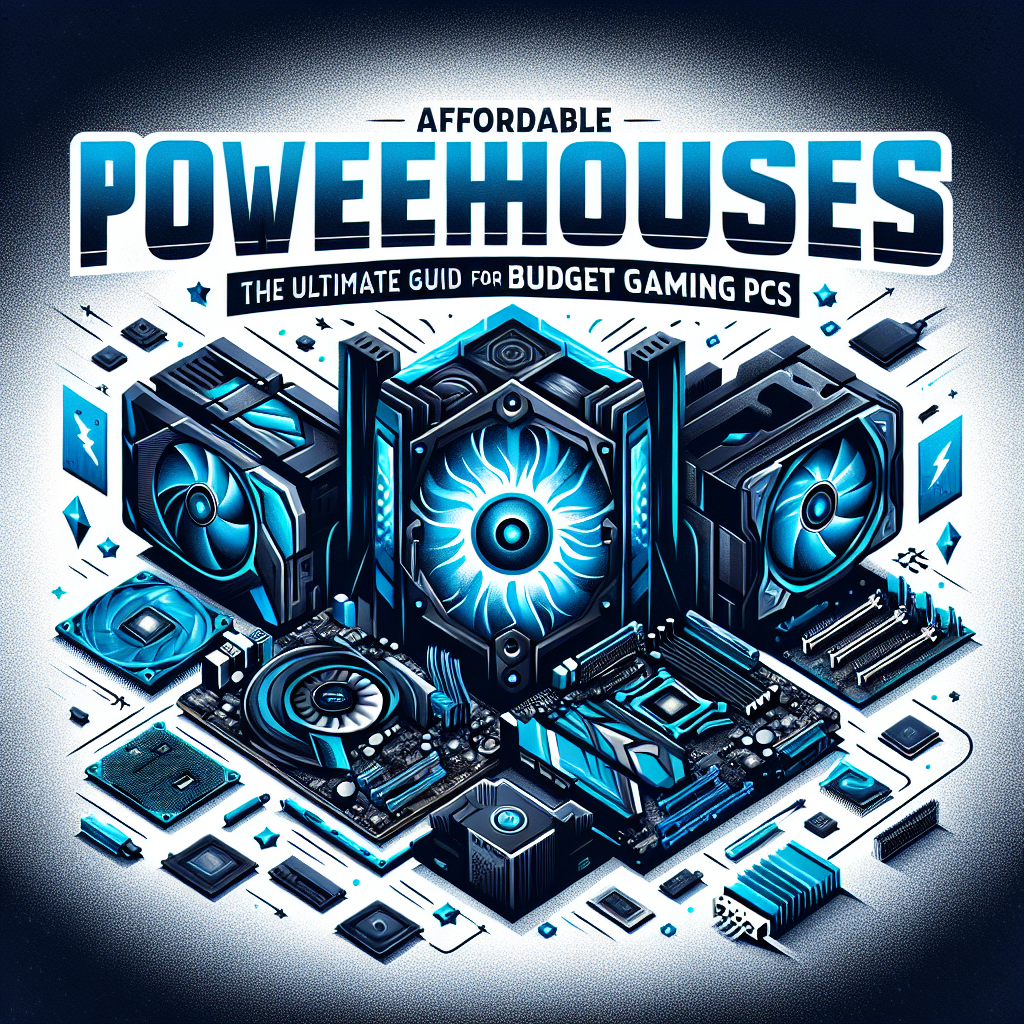Affordable Powerhouses: The Ultimate Guide to Budget Gaming PCs
In a world where gaming has transformed from a niche hobby into a mainstream entertainment juggernaut, many enthusiasts often find themselves grappling with a daunting question: How can I build or buy a powerful gaming PC without breaking the bank? Thankfully, budget gaming computers have evolved significantly in recent years, offering impressive performance and capabilities at an affordable price. In this article, we will explore essential components, budget-friendly options, and tips for assembling your own budget gaming powerhouse.
Understanding Budget Gaming PCs
A budget gaming PC is designed to deliver decent gaming performance at a lower cost than high-end gaming rigs. These machines are ideal for casual gamers, those entering the gaming space for the first time, or anyone looking for a reliable gaming machine without spending thousands of dollars. As gaming technology improves, it becomes increasingly possible to squeeze strong gaming performance out of budget components without compromising too much on quality.
Key Considerations When Building a Budget Gaming PC
-
Define Your Budget: Start by determining how much you can spend. A common range for budget gaming PCs is between $500 to $1,000, but it’s possible to build a decent machine for even less.
-
Prioritize Components: Knowing which components offer the best performance for your budget is crucial. Generally, you want to focus on a capable CPU and GPU, as they significantly impact gaming performance.
-
Future Upgrades: Consider building a machine that allows for future upgrades. This way, you can enhance performance over time without having to buy a completely new system.
- Compatibility: Ensure that the components you choose are compatible with one another. Using a PC building website or tool can help you check compatibility.
Essential Components for a Budget Gaming PC
When building a budget gaming rig, here are the key components you’ll need:
1. Central Processing Unit (CPU)
The CPU is at the heart of your gaming PC. For budget systems, consider options such as:
- AMD Ryzen 5 series or
- Intel Core i5 processors.
Both brands offer competitive performance for gaming and multitasking at a decent price point.
2. Graphics Processing Unit (GPU)
The GPU is arguably the most important component for gaming performance. Look for:
- NVIDIA GTX 1650 or AMD Radeon RX 6500 XT for low-budget options.
- If your budget allows, consider NVIDIA RTX 3060 or AMD Radeon RX 6600 for more demanding games.
Be mindful of the current GPU market, as prices can fluctuate due to demand and availability.
3. Memory (RAM)
For a smooth gaming experience, opt for at least 16 GB of RAM. Look for a speed of 3200 MHz or higher for optimal performance, especially when gaming and multitasking.
4. Storage Solutions
Speed up load times by incorporating both an SSD and HDD if your budget allows:
- A 256 GB SSD for your operating system and most-played games.
- A larger 1 TB HDD for additional storage of games, media, and files.
5. Motherboard
Choose a motherboard that is compatible with your CPU, has room for upgrades, and includes essential features such as USB ports, networking capabilities, and expansion slots.
6. Power Supply Unit (PSU)
A reliable PSU is critical to keeping your system stable. Aim for a unit with at least 80 Plus Bronze certification to ensure efficiency and reliability.
7. Casing
Select a case that fits your components, offers good airflow, and matches your aesthetic preferences. When choosing a case, consider factors like room for future upgrades and cable management.
Pre-Built Options: Alternatives to Building
If assembling your own gaming PC isn’t an option, several manufacturers offer pre-built budget gaming PCs that provide great value. Brands like HP, Dell, and Acer frequently update their gaming lines with models that balance performance and affordability.
Recommended Pre-Built Budget Gaming PCs:
- HP Pavilion Gaming Desktop
- Acer Nitro 50
- SkyTech Archangel Gaming PC
Tips for Maximizing Value on a Budget
- Look for Deals: Keep an eye on sales and promotions on websites like Newegg, Amazon, and Micro Center.
- Consider Refurbished Options: Refurbished parts can offer significant savings. Make sure they come with a warranty.
- DIY Assembly: Video tutorials make it easier than ever to build your own PC. Not only can you learn valuable skills, but assembling your own PC can save you money.
Conclusion
Building or buying an affordable gaming PC doesn’t have to be an overwhelming process. By understanding the essential components, considering pre-built options, and focusing on maximizing value, gamers of all skill levels can create a budget-friendly machine capable of handling modern games. As the gaming industry continues to expand, so too should your enthusiasm and drive to get the most out of your gaming experience—without the burden of overspending. Happy gaming!




